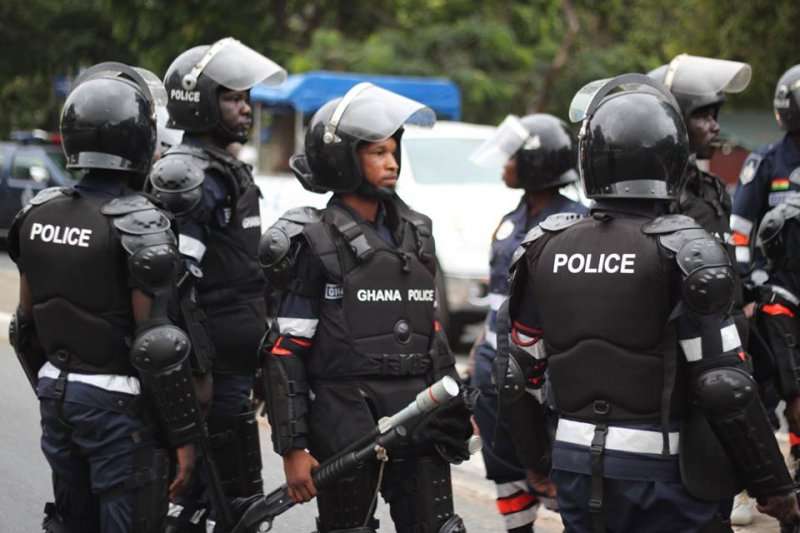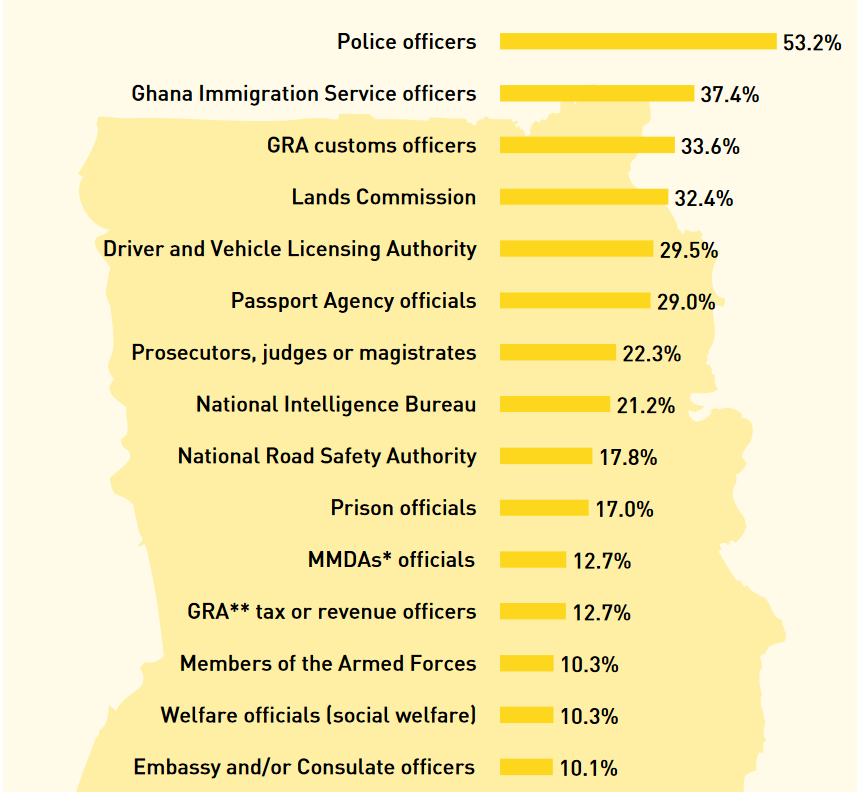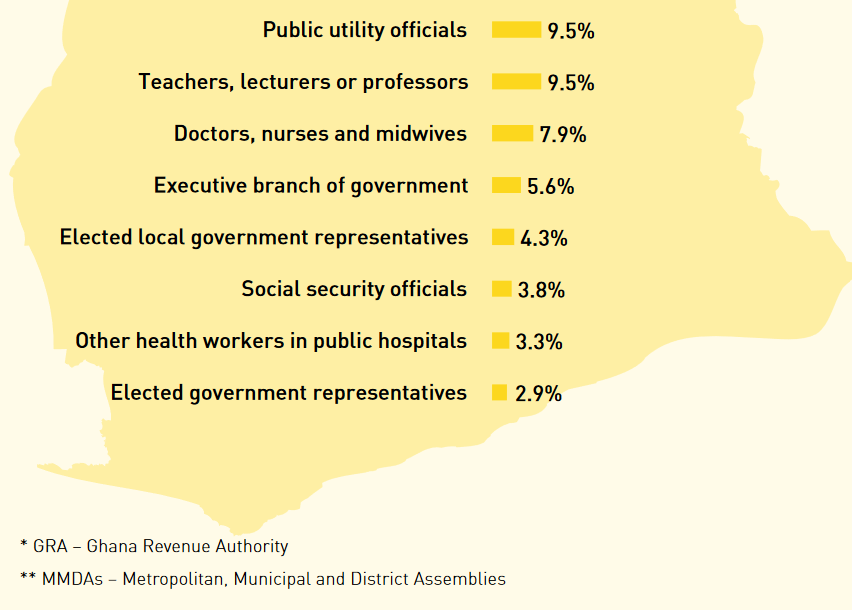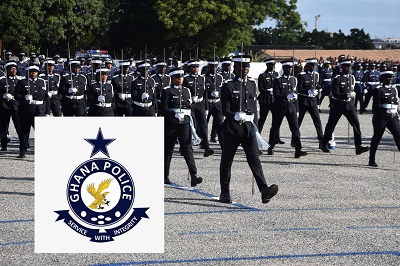A devastating 2022 corruption report on Ghana has exposed light on the country’s extensive bribery problem in the public sector.
According to the data, police officers are the most vulnerable to bribery of any public figure, with a frightening prevalence rate of 53.2 percent.
The poll, undertaken in collaboration with the Commission on Human Rights and Administrative Justice (CHRAJ) and the Ghana Statistical Service (GSS), provides a troubling view of the level of corruption.

Bribery rates for Ghana Immigration Service (GIS) officers and Ghana Revenue Authority (GRA) customs officers were equally high, at 37.4 percent and 33.6 percent, respectively.
Notably, elected government representatives had a significantly lower rate of bribery involvement, at 2.9 percent.
Bribes to public authorities take several forms. Almost nine out of ten payments in Ghana are made in cash (84.8%). Food and drink, as well as the exchange of one public service for another, are significantly less popular, however in the country’s rural areas (17.8 percent), they are more common. more
Bribes are paid in the form of food and drink in its rural areas (10.1%) than in its urban areas.
Total cash bribes paid in Ghana amount to over one-third of the Ministry of Education’s budget for 2021.
Bribes in cash are 1.5 times higher in urban areas than in rural areas, with the national average bribe coming to Ghanaian cedi 348. Given that about 17.4 million bribes were paid in Ghana in 2021, a total of approximately Ghanaian cedi 5 billion is paid in cash bribes to public officials in Ghana on a yearly basis, or the equivalent of 32.9 percent of the Ministry of Education’s budget for 2021.


















